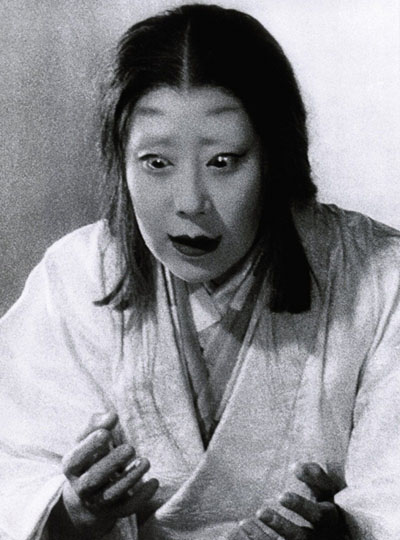“Isuzu Yamada, known for a variety of theater and screen roles including some directed by legendary filmmaker Akira Kurosawa, died of multiple organ failure at a Tokyo hospital Monday evening,” reports Kyodo News. Yamada was 95. “She made appearances in a number of popular and highly regarded films by renowned Japanese directors, including some by masters Kenji Mizoguchi, Yasujiro Ozu, Mikio Naruse and Akira Kurosawa. Her major movies included Osaka Elegy and Sisters of the Gion by Mizoguchi and Nagareru by Naruse, as well as Throne of Blood and The Lower Depth by Kurosawa.”
“Born in 1917 in Osaka, Yamada joined the Nikkatsu studio in 1930 and made her screen debut that same year,” writes Mark Schilling for Variety. “In the postwar era, when Japanese cinema gained international recognition, while setting BO records at home, Yamada became an in-demand character actress, playing a geisha teahouse proprietor in Mikio Naruse’s Flowing (1956), the ruthless wife of an ambitious lord in Akira Kurosawa’s Throne of Blood (1957) and a domineering gang boss wife in the same helmer’s Yojimbo (1961). In the 1960s, as Japanese pics faded at the box office, Yamada made a successful transition to stage and television…. In 2000 she became the first actress to be awarded the Order of the Sacred Treasure, Japan’s highest cultural award.”
Robin Wood for Film Reference: “As Noël Burch suggests, Osaka Elegy is stylistically torn between a capitulation to the codes of dominant cinema—Hollywood—and the repudiation of them marked so emphatically by Sisters of Gion. It is also torn, thematically and dramatically, between the female masochism of earlier Mizoguchi films (such as Taki No Shiraito, 1933) and the feminist protest to come—marvelously anticipated in the final shot, in which Ayako [Yamada] walks and stares straight into camera, with a look combining defiance with denunciation of the society (i.e., the film’s contemporary audience) that has condemned her to prostitution…. Where Sisters of Gion breaks with the codes of western cinema, Osaka Elegy evokes direct comparison with certain Hollywood films of the same period, especially the films of von Sternberg with Marlene Dietrich, where the resemblance is stylistic as well as thematic. It lacks the extraordinary excess and obsessiveness that give the von Sternberg films their unique distinction; on the other hand, the political rigor that was to characterize the Mizoguchi films centered on women up to 1950 is here more than embryonic.”
Update, 7/11: “Yamada’s range was remarkable,” writes Ronald Bergan for the Guardian. “She was fortunate to have emerged at the time that Mizoguchi, whose focus was always on persecuted women, was changing his attitude towards them from being destroyed victims of male society to characters vital enough to fight, often in vain, for survival against the social system…. Her only film for Yasujiro Ozu, Tokyo Twilight (1957), revealed her to be as adept in shomin-geki (home dramas) as any other genre. Here she plays a liberated woman who left her husband and two daughters to live with another man, but returns to the family many years later. It is interesting to note the difference between her finely shaded performance in the Ozu with her highly stylised one as Lady Washizu (Lady Macbeth) in Kurosawa’s Throne of Blood in the same year.”
Update, 7/15: In the New York Times, Dennis Lim writes that, “whether portraying a victim or villain, a rebellious girl or a ‘fallen woman,’ as many of her early roles came to be called, she brought to bear a signature poise and toughness…. The scholar Donald Richie, who wrote about Ms. Yamada in his book Japanese Portraits (2006), described her as a peerless technician who mastered the art of the kata, the intricate physical language specific to classical Japanese dance and theater. ‘This art informs everything that Yamada does: the way she turns, the way she lifts her hand, the way she smiles,’ Mr. Richie wrote. ‘A knowledge this encompassing means that Yamada always knows precisely what to do and how to do it.'”
For news and tips throughout the day every day, follow @KeyframeDaily on Twitter and/or the RSS feed. Get Keyframe Daily in your inbox by signing in at fandor.com/daily.




